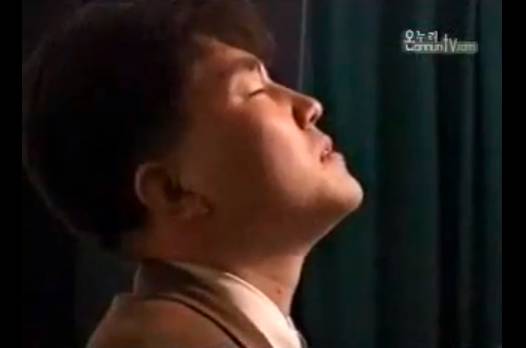
The movement, known as “Father School,” was founded by a pastor at a Bible college in Seoul, South Korea in 1995, but has since been in the forefront of reaching immigrant and non-immigrant fathers to become more active in their families, often teaching the biblical model of servanthood to bring about this change in parenting styles.
Allen J. Kim, a doctoral candidate at the University of California at Irvine, studied the movement in South Korea and the U.S. and finds that it seeks to create the image of a caring and compassionate “new father” through conversion techniques at “warp speed”-at five six-hour meetings on Saturdays.
Kim, presented a paper on Father School at the mid-August meeting of the Association for the Sociology of Religion in New York, which Religioscope attended. He said that Korean-American immigrant families have shown higher rates of physical and emotional abuse by fathers than other immigrant groups. Korean-American teens suffer more depressive symptoms than other adolescents from immigrant families, and the men themselves show high incidence of drinking bouts and suicide. Kim said that Korean fatherhood has been shaped by generations of “conservative patriarchal ideology in the Confucian tradition. Within Confucianism, the father is viewed as the breadwinner, leader and disciplinarian, in contrast to the mother, who is labeled as caregiver, housewife, and emotional provider.”
The fathers often join Father School at the urging of their wives and children, and the events are frequently endorsed and publicized by churches, which function as key social centers in Korean communities. Although Father School offers secular versions of its program, the movement’s Christian orientation is evident in its various concepts and rituals.
Participants in Father School are encouraged to substitute Confucian speech patterns, particularly those expressing hierarchical and status-based family and social roles, for Western and egalitarian language, as they are urged to call each other “brother.” They also engage in hugging exercises in the seminars, first with other participants and then with family members. Men are often asked to shout in unison, “Lord, I am a father,” and speakers extol the servant example of Jesus who “…loved, cried, and sought to forgive” to urge similar expressive behaviors.
Kim added that participants in Father School are urged to write confessional letters to their fathers-whether they are dead or alive-and to their wives and children where they ask for forgiveness from family members for transgressions while seeking healing from the emotional wounds they may have suffered during their own upbringings.
As the Father School concludes, the rituals become more explicitly religious. The Father School stresses the role of the father as a nurturing spiritual head with the exercise known as the “blessing of the family.” Men are instructed to place their hands upon family members as they pronounce God’s blessing on them. On the last day of the seminar, men are called follow the example of Jesus and wash the feet of their wives while making a vow of spiritual and sexual purity-an emotional event for both wife and husband that deeply challenges Confucian ideals of authority and hierarchy.
Kim added that the Father School is spreading beyond the Korean community, especially among Hispanics. He notes that more than 3,500 Father School programs have graduated 250,000 mainly non-Western men around the world. Although there has been no research to ascertain, the effectiveness o the seminars in family life, just the act of fathers writing letters and seeking reconciliation with family members is valued by children and wives.
Richard Cimino